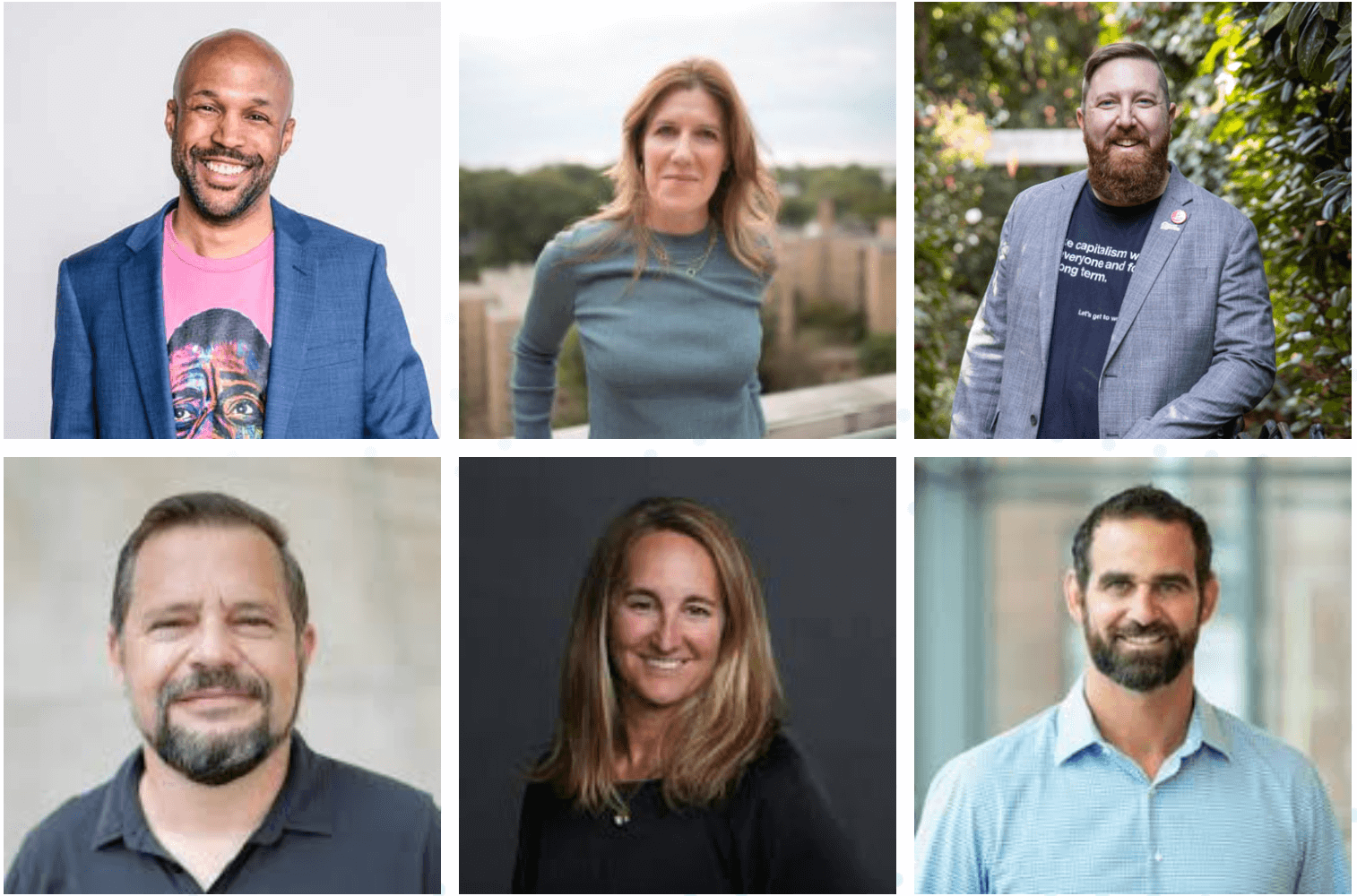Greetings, ImpactAlpha readers!
Another week, another revolution in finance. International Women’s Day has become International Women’s week. We knew the impact investing ecosystem would produce a bounty of research and reports, executive summaries and statements, analysis and aspiration and, as ever, you did not disappoint. One week, it’s gender-lens investing to drive women’s leadership for the 2030 global goals. Another it’s place-based system entrepreneurs driving America’s inclusive New Revival. All the while, you help us keep a lookout for signals of the low-carbon tipping point, the fortunes of private-equity players, the institutional shifts of universal owners. Thank you for sharing with us the work and the deals you are doing so we can share it all with you.
Just this week, ImpactAlpha’s small but mighty team brought you more than a dozen deals (thank you, Jessica Pothering!) along with more than a dozen features, signals (thank you, Dennis Price!) and guest contributions (thank you!). With fellow roundtable regulars, Imogen Rose-Smith and Brian Walsh, we recorded a Returns on Investment podcast on Tuesday, posted it Thursday (thank you, Isaac Silk!). We released another video interview (thank you Mia Haugen and Lindsay Smalling of SOCAP!) and rounded up nine badass New Revivalists from our partnership with Village Capital (thank you, Zuleyma Bebell!) We posted dozens of pieces to ImpactAlpha.com (thanks, Roodgally Senatus!) and drove hundreds of social media mentions (thanks, Lyneka Little!). Chris Noble corralled the entire stampede into another week of snappy, solid daily Briefs. Thank you, thank you, thank you to everybody who is helping take ImpactAlpha to the next level. If you’re a reader of The Brief, you know this impact thing is on. Keep us in your loop with a note to [email protected]. — David Bank
#The Brief’s Big Ten
- South by Social: Austin is the capital of impact entrepreneurship, too. Kicking off today, people from all over the country don their best hipster duds, dust off their cowboy boots and descend on Austin, Texas, for SXSW (pro tip: just call it “South by”). The smorgasbord of activities has elevated Austin’s reputation as a hub for technology, breakfast tacos and great craft beer. But short-term visitors might miss Austin’s long-term efforts to become a center of enterprise-driven social innovation. Take Amy Bell’s guided tour of Austin’s impact entrepreneurship ecosystem.
South by Social: Austin is the capital of impact entrepreneurship, too
- ImpactAlpha’s guide to social impact at SXSW. Village Capital’s impact-entrepreneurship schedule… Backstage Capital’s returns-on-inclusion agenda… Case Foundation’s can’t miss sessions… Ta-Nehisi Coates… Algorithms, Unconscious Bias, & AI… Blockchain for Refugees& Global Governance & Healthcare & Mobility and Logistics &Decentralization of Finance… How Tech Hubs Outside SV Lead The Way on Diversity… The Value of Women Investing in Women… Tim O’Reilly… The $200B Femtech Opportunity… Why Black Women are 2018’s Best Investment….
2. Better newsonomics. This week, Publicis Groupe, Knight Foundation, Blue Haven Initiative — the family office of Liesel Pritzker Simmons and Ian Simmons — and 15 other investors backed a startup that will review and rate 7,500 news websites in the US. NewsGuard, founded by Steven Brill, who started the American Lawyer and Court TV, and Gordon Crovitz, former Wall Street Journal publisher, plans to hire experienced journalists to rate each site and write up a “nutrition label” that will describe its history, subject matter, ownership, financing, editorial leadership and other factors. Check it out.
NewsGuard launches with $6 million in backing to fight fake news
- This isn’t new. Investment managers like Media Development Investment Fund have been investing in independent media for decades. For example.
3. Labor supply-chain risks are driving labor-lens investing…Just as organic food booms with awareness of food risks, “social investment strategies are growing as investment risks from harmful labor practices become clear,” says Michele Demers of Boundless Impact, the research firm that put out the report. Boundless this week released “Labor Lens Investing,” an analysis of investment models that directly address labor exploitation and forced labor. There’s room for disruption: $51 billion a year is reaped from goods made with forced labor. Labor-lens investing.
‘Labor-lens investors’ are disrupting exploitative supply chains
4. …And environmental supply-chain risks are motivating new investor tools. Soft Commodity Risk Platform, or SCRIPT, from Global Canopy, WWF and Ceres, helps financial institutions screen their investment portfolio for environmental flags, like companies that source unsustainable palm oil products or that have supply chains that contribute to deforestation. SCRIPT has two features: a policy benchmarking tool for banks to measure the environmental policies against their peers, and a risk tool that screens for high-risk portfolio companies. De-risk.
Global Canopy launches tool for corporate supply chain risk
5. Investors are waking up to gender-related portfolio risks…In the past month, sexual harassment allegations against Steve Wynn and Paul Marciano led to nearly 20% declines in stock prices of the companies they founded. Private companies such as Uber and the Weinstein Company are confronting the financial risks of toxically sexist internal cultures (And yes, a majority-female investor group just purchased Weinstein Co.). But are investors prepared to make a gender-lens strategy a reality? From mandates to metrics.
From mandates to metrics: Making a gender lens investment strategy real
6. …And the opportunity case for investing in women. The IFC’s Banking on Women initiative has mobilized more than $1.3 billion to help get 50 banks in 34 countries lending to women-owned small businesses. With a profitable new line of business, the banks are now lending on their own. Likewise, IFC technical support helped Ecom, the world’s third-largest coffee distributor, improve productivity by boosting the skills and status of women farmers. Watch ImpactAlpha Editor David Bank interview Shalaka Joshi, the IFC’s South Asia “gender lead.” The business case.
Shalaka Joshi: The case for embedding gender in business decisions (video)
7. …Plus there’s the long-term growth case. If you’re looking to tap the next big global growth markets, you’d better be a woman, or at least be sitting next to one. Last year, the Business and Sustainable Development Commission outlined the $12 trillion “economic prize” in delivering on the UN’s 17 Sustainable Development Goals to end poverty, boost social well-being and fight climate change. Now the group is raising the stakes by highlighting the role of women’s leadership in delivering — and capturing the gains from — the global goals. Win in the global growth markets.
Women’s leadership delivers a prize for all: long-term sustainable growth
8. The fact is, the global economy is under-weighted women. And that’s a big problem. From fund management teams and boards to venture capital disbursements and startup founders, the world’s economy is over-weighted men. We’re leaving talent, profits, economic opportunity, and yes…impact, on the table. We’re heightening levels of risk. The benefits of women’s leadership, and their very presence, in the economy are becoming more widely known. The opportunity in 2018 is capturing those benefits with a new set of intentional strategies, investment approaches and business-building processes. A roundup of gender-lens tools, research and platforms.
Women’s Day roundup: Narrowing gaps, long-term leadership and gender lenses
9. But gender equity is not only the smart thing, it’s the right thing, to invest in. There are all kinds of ways in which applying a gender lens provides an investment advantage. But what happens if those investment advantages don’t prove out, or if the context is more complex than it first appears? “There’s pushback on this investment-advantage argument,” ImpactAlpha’sDavid Bank observes in the latest ‘Returns on Investment’ podcast. “Should we have gender and racial inclusion because it’s a good investment, or because it’s the right thing to do?” What do you think?
Gender equity is not only the smart thing, it’s the right thing, to invest in (podcast)
10. Look at these nine badass women redefining who builds businesses…and who writes the checks. Female founders grabbed just 2% of venture capital in 2017. Women founders of color received even less. Time’s up. These New Revivalists in Los Angeles, Oakland, New Orleans, Washington DC, Philadelphia and across the US are changing who gets to build businesses in America…and who writes the checks. It’s savvy business.
Nine badass women redefining who builds businesses…and who writes the checks
- This week’s New Revivalist in action: Backstage Capital backs Solstice and Pilotly
Onward! Please send news and comments to [email protected].











